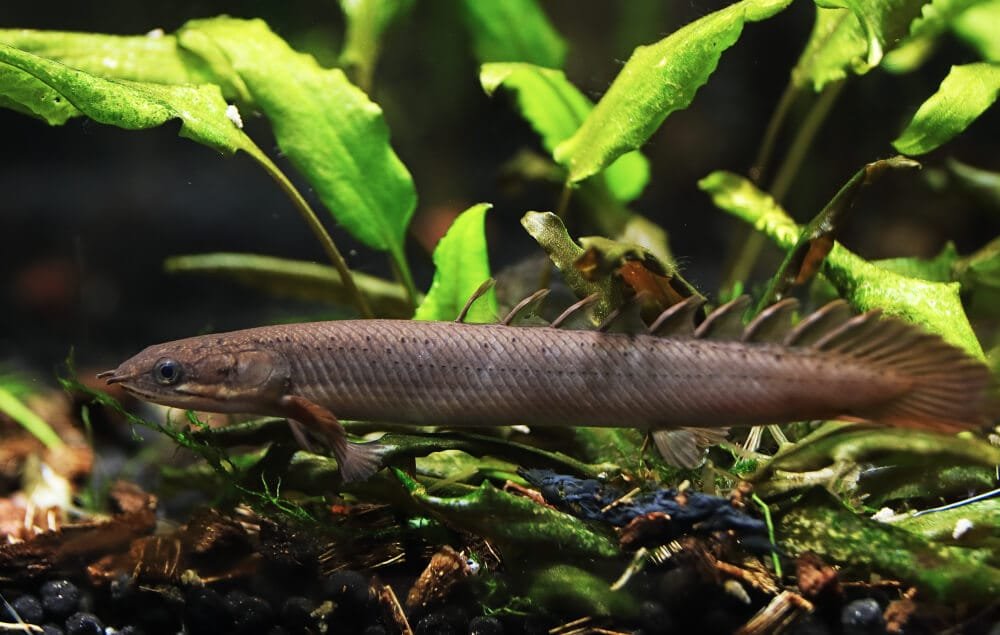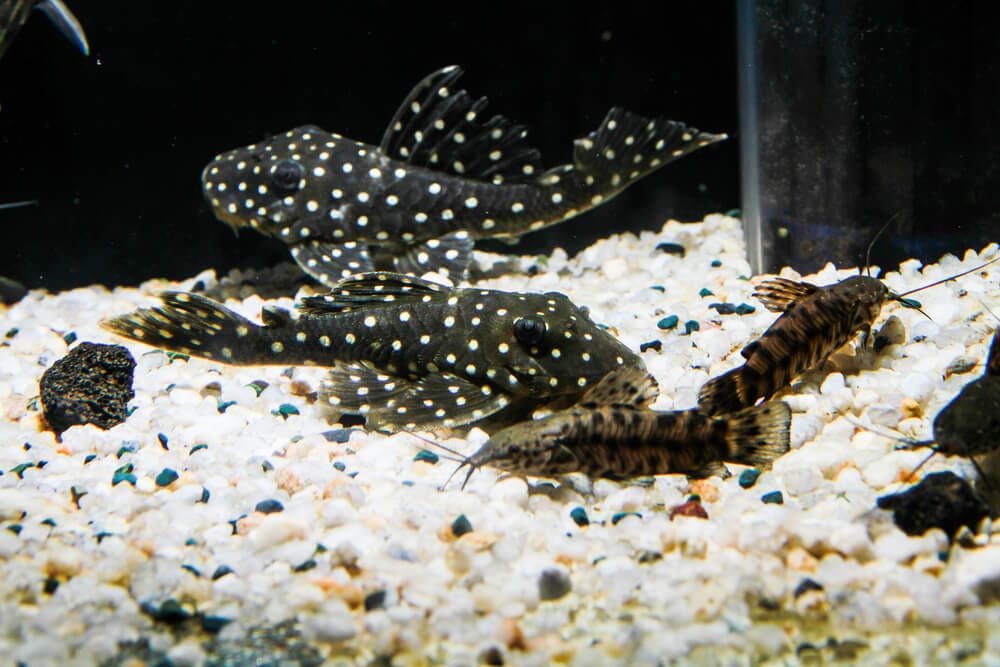Are you a proud owner of a Dwarf Gourami? If so, it’s important to be knowledgeable about the common diseases that can affect these beautiful fish. In this article, we’ll discuss some of the most prevalent diseases that Dwarf Gouramis can succumb to and provide you with effective treatment methods. By being aware of these diseases and knowing how to treat them, you can ensure the health and longevity of your beloved fish companion. So let’s dive right in and learn more about keeping your Dwarf Gourami happy and healthy!
Common Diseases That Affect Dwarf Gourami
Dwarf Gourami Iridovirus (DGIV)
One of the common diseases that can affect Dwarf Gourami is the Dwarf Gourami Iridovirus (DGIV). This viral infection primarily affects the immune system of the fish, causing symptoms such as loss of appetite, bloating, and abnormal swimming behavior. Unfortunately, there is no known cure for DGIV, and affected fish often have a low chance of survival. The best course of action in the case of DGIV is to quarantine the infected fish to prevent further spread of the virus.
Dwarf Gourami Disease (DGD)
Dwarf Gourami Disease (DGD) is another prevalent illness among this fish species. It is caused by a bacterial infection called iridovirus. Symptoms of DGD may include swollen abdomen, labored breathing, and a loss of coloration. This disease can be challenging to treat, but steps can be taken to alleviate the symptoms. Quarantining the infected fish and providing proper nutrition are essential. Medications such as antibiotics may be prescribed by a veterinarian to help combat the bacterial infection.
Columnaris Disease
Columnaris disease is a condition caused by the bacterium Flavobacterium columnare and can affect Dwarf Gourami. It is characterized by the development of white patches or fuzzy growth on the fish’s body or fins. Columnaris disease can spread rapidly and cause significant damage if left untreated. To treat this disease, it is crucial to provide a stress-free environment and improve water quality. Medications like antibacterial treatments can be used, but proper care and prevention are the best long-term strategies.
Velvet Disease
Velvet disease, also known as Gold Dust disease, is caused by the parasite Piscinoodinium pillulare. Infected fish may exhibit symptoms such as a golden or rusty dust-like appearance on their body, rubbing against objects, and decreased appetite. To treat Velvet disease, medications designed to target parasites should be administered according to the instructions provided. Improved water quality, proper nutrition, and stress reduction also play a crucial role in the fish’s recovery.
Ichthyophthiriasis (Ich)
Ichthyophthiriasis, commonly known as Ich, is a parasitic disease that commonly affects tropical fish, including Dwarf Gourami. It is caused by the parasite Ichthyophthirius multifiliis and is recognized by the appearance of white spots resembling grains of salt on the fish’s body and fins. Treatment for Ich involves the administration of anti-parasitic medications, which can be found in pet stores or prescribed by a veterinarian. Raising the water temperature and maintaining optimal water quality can also aid in combating this disease.
Fin Rot
Fin Rot is a bacterial infection that can affect the fins and tail of Dwarf Gourami. It is typically caused by poor water conditions, such as high ammonia or nitrate levels. Symptoms include frayed, ragged, or disintegrating fins, as well as a loss of coloration. To treat Fin Rot, steps should be taken to improve water quality by regular water changes and maintaining appropriate levels of ammonia, nitrate, and pH. Administering antibiotics can help combat the bacterial infection and promote fin regrowth.
Dropsy
Dropsy is a condition characterized by the buildup of fluid inside the fish’s body, leading to a swollen and bloated appearance. It can be caused by various factors, including bacterial or viral infections, water quality issues, or internal organ damage. Unfortunately, treating Dropsy is challenging, and the prognosis may be poor. Isolating the affected fish, maintaining excellent water quality, and supportive care such as providing a balanced diet can help improve the fish’s condition.
Parasitic Infections
Dwarf Gourami can be susceptible to various parasitic infections, including those caused by protozoan parasites like Gyrodactylus and Dactylogyrus. These parasites can cause symptoms like discolored patches on the skin, loss of appetite, and excessive mucus production. Treatment for parasitic infections involves using specific medications designed to target the particular parasite, typically available in pet supply stores. Regular observation, maintaining optimal water conditions, and preventing stress are crucial to preventing and treating parasitic infections.
Bacterial Infections
Bacterial infections, such as those caused by Aeromonas, Pseudomonas, or Flexibacter bacteria, can affect the health of Dwarf Gourami. These infections can lead to symptoms such as open sores, ulcers, fin rot, or swollen eyes. Treating bacterial infections often involves administering antibiotics specific to the type of bacteria causing the infection. Supplementary steps like improving water quality, diligent cleaning, and maintaining a stress-free environment are essential to aid the fish’s recovery.
Fungal Infections
Fungal infections can affect Dwarf Gourami, particularly in cases where the fish has open wounds or pre-existing bacterial infections. Symptoms of fungal infections can include white or gray patches on the skin, cotton-like growth on wounds, or fins. Treating fungal infections involves using antifungal medications, which can be obtained from pet stores or prescribed by a veterinarian. Proper water quality, minimizing stress, and providing adequate nutrition help improve the fish’s resilience to fungal infections.
Treatment for Dwarf Gourami Diseases
Quarantine the Infected Fish
When a Dwarf Gourami is suspected to have a disease, it is crucial to quarantine the infected fish immediately. By isolating the affected fish in a separate tank, you can prevent the spread of any potential diseases to other healthy fish in the aquarium. Quarantine tanks should be properly maintained, ensuring excellent water quality and stress-free conditions for the fish’s recovery.
Improve Water Quality
Maintaining optimal water quality is vital for the overall health and well-being of Dwarf Gourami. Regular water changes, proper filtration, and monitoring ammonia, nitrate, and pH levels are essential. Diseases in fish often occur as a result of poor water conditions, so keeping the aquarium environment clean and suitable is crucial for preventing and minimizing the risk of diseases.
Adjust Temperature and pH Levels
Certain diseases may be more prevalent or exacerbated by specific temperature or pH conditions. It is important to research and ensure that the water temperature and pH levels in the tank are within the recommended range for Dwarf Gourami. Adjusting these parameters to the appropriate levels can help alleviate stress, promote a stronger immune system, and aid in the treatment of certain diseases.
Medication Treatment
In some cases, medication may be necessary to treat diseases that affect Dwarf Gourami. It is crucial to consult with a veterinarian or a knowledgeable fish expert to diagnose the specific disease and prescribe the appropriate medication. Medications may include antibiotics, anti-parasitic treatments, or antifungal agents. Follow the instructions provided and administer the medications as directed to ensure the best possible outcome for the infected fish.
Provide Proper Nutrition
Proper nutrition plays a vital role in boosting the immune system of Dwarf Gourami and aiding in their recovery from diseases. Ensure that the fish are being fed a well-balanced diet that meets their dietary requirements. High-quality commercial fish food, supplemented with occasional live or frozen foods, can provide essential nutrients to support overall health and enhance the fish’s ability to fight off diseases.
Stress Reduction
Stress is a significant factor in the susceptibility of fish to diseases. Creating a stress-free environment for Dwarf Gourami is crucial for their overall health and well-being. This can be achieved by providing appropriate tank mates, minimizing sudden changes in water conditions, maintaining consistent lighting schedules, and avoiding overcrowding in the aquarium. Reducing stress levels can promote a stronger immune system and help prevent the onset of diseases.
Prevention Measures
Preventing diseases is often easier than treating them. Implementing preventive measures can significantly reduce the risk of diseases in Dwarf Gourami. This includes thoroughly quarantining new fish before introducing them to an established tank, maintaining excellent water quality, providing proper nutrition, and minimizing stress. Regular observation of the fish for any signs of illness and prompt action in case of disease detection are essential in preventing outbreaks and ensuring the overall health of the aquarium.





